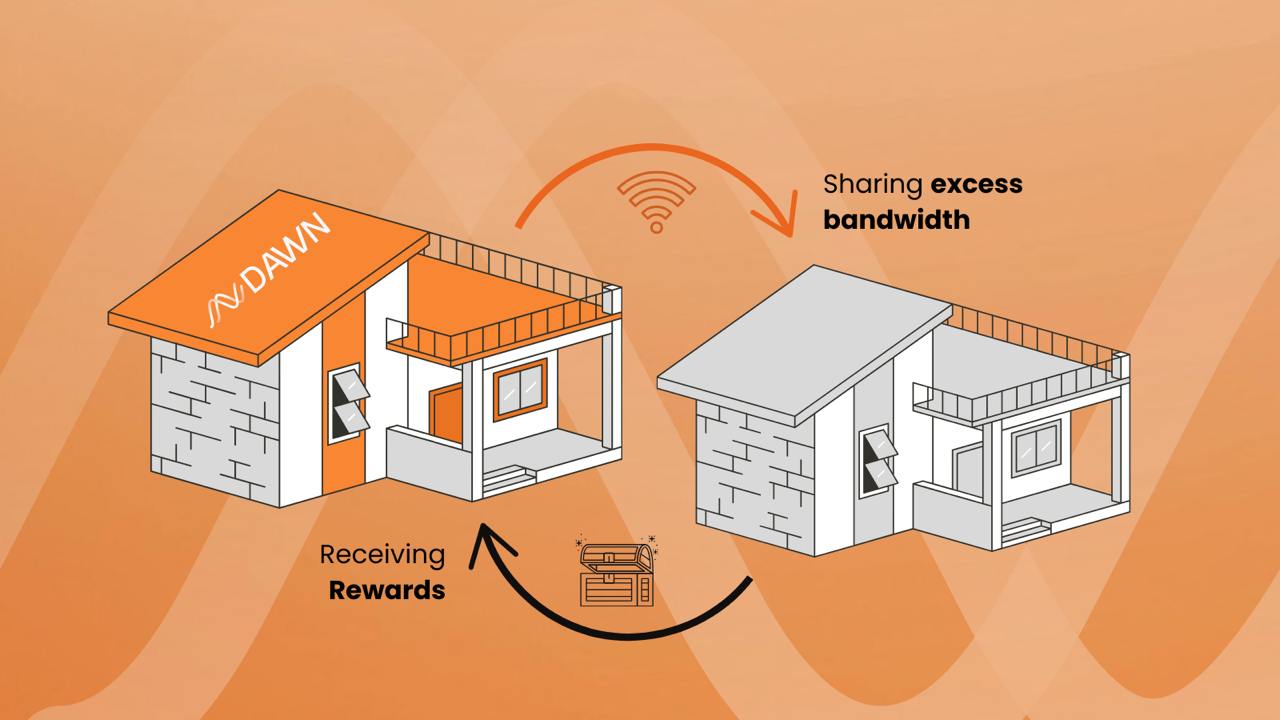Crypto fans, if you’re into Decentralized Physical Infrastructure Networks (DePIN) like Helium or Filecoin, here’s a project that’s turning heads: Dawn Internet (@dawninternet). Built on Solana, Dawn is a DePIN protocol that lets you buy, sell, and share internet bandwidth, cutting out greedy ISPs. Backed by wireless tech pros, it’s blending real-world hardware with crypto incentives to make your router a money-making node. New to Dawn? Let’s break it down.
Why ISPs Are the Problem
Internet service providers (ISPs) like Comcast control the “last mile” of connectivity, charging steep fees ($60-80/month in the US) for often mediocre service. Rural areas and emerging markets get hit hardest, with slow or no access. Dawn’s solution? A decentralized marketplace where you share unused bandwidth, earn crypto, and build community-driven networks. It’s like DeFi for your Wi-Fi.
What Is Dawn Internet?
Dawn, or Decentralized Autonomous Wireless Network, runs on Solana’s fast, low-cost blockchain. It’s the brainchild of Andrena, a wireless tech company serving 10,000+ US households across 10 states since 2019. Dawn lets users trade bandwidth peer-to-peer—sell spare fiber to your neighbor or buy speed for your Netflix binge. Solana smart contracts verify everything via proofs of backhaul, location, and frequency, ensuring trustless deals.
The Tech: Hardware Meets Crypto
Dawn’s ecosystem combines cutting-edge hardware with blockchain:
- Black Box: A high-tech router with antennas delivering gigabit speeds up to 7 miles. It supports DePIN integrations like Storj (storage), Spheron (compute), and Inference Labs (AI), making your home a Web3 hub.
- Security: Ubitel’s Trusted Execution Environments (TEEs) keep nodes tamper-proof.
- Validator Extension: A Chrome extension lets you validate network coverage and earn points—your ticket to potential airdrops.
- Rooftop Nodes: Devices like NYC’s “The Dime” turn buildings into bandwidth relays.
Solana powers the backend: smart contracts for trades, staking for spectrum access, and oracles for real-time proof of service. Pilots are live in the US, with plans to expand to markets like Ghana.
Tokenomics and Rewards
Dawn’s native token (launch TBD) will drive the ecosystem. Expected use cases include:
- Bandwidth Sharing: Earn tokens for sharing unused internet.
- Node Hosting: Run a Black Box or rooftop node for higher rewards.
- Validation: Use the Chrome extension to stack points.
- Staking: Lock tokens to access wireless spectrum.
No token yet? Join the points program via Layer3 quests, referrals, or Discord engagement for airdrop eligibility. Backed by $18M from Dragonfly, ParaFi, and Wintermute, Dawn’s got the funds to scale.
| Role | Activity | Rewards |
|---|---|---|
| Provider | Share bandwidth | Tokens + points |
| Node Host | Deploy Black Box | Tokens + uptime rewards |
| Validator | Run extension | Airdrop points |
| Staker | Lock tokens | Spectrum access yield |
Why Dawn Matters
DePIN’s a $2T market, and Dawn’s connectivity focus is key. Partnerships with Helium (wireless) and Arcium (encrypted compute) position it as Web3’s infrastructure backbone. Founder Neil Chatterjee’s been on Messari and The Rollup, pitching homes as digital real estate. With enterprise tie-ups and global expansion, Dawn’s poised for impact.
Risks to Watch
Scaling wireless networks faces regulatory and interference hurdles. Hardware costs could slow adoption, and token launches carry volatility risks. Still, Andrena’s track record gives Dawn an edge.
Get Started
- Visit dawninternet.com: Grab the Validator Extension for points.
- Follow @dawninternet on X: Stay updated on AMAs and partners.
- Join Discord/Telegram: Earn quest rewards.
- Go Pro: Pre-order a Black Box to become a node host.
Final Take
Dawn Internet is DePIN done right: real-world utility, Solana’s speed, and airdrop potential. It’s your chance to ditch ISP monopolies and earn crypto. Stack points, watch for the token launch, and join the decentralized internet wave.

